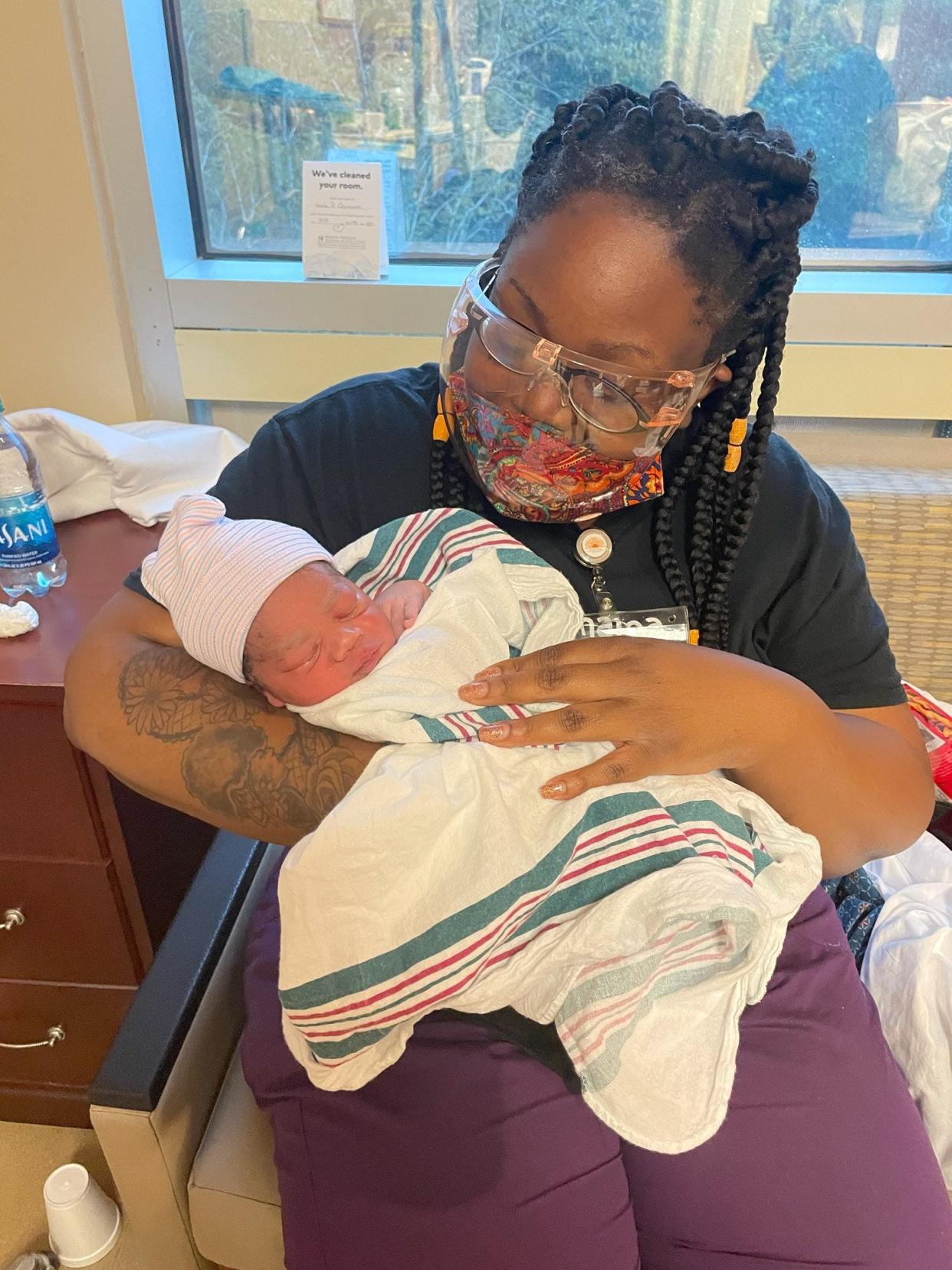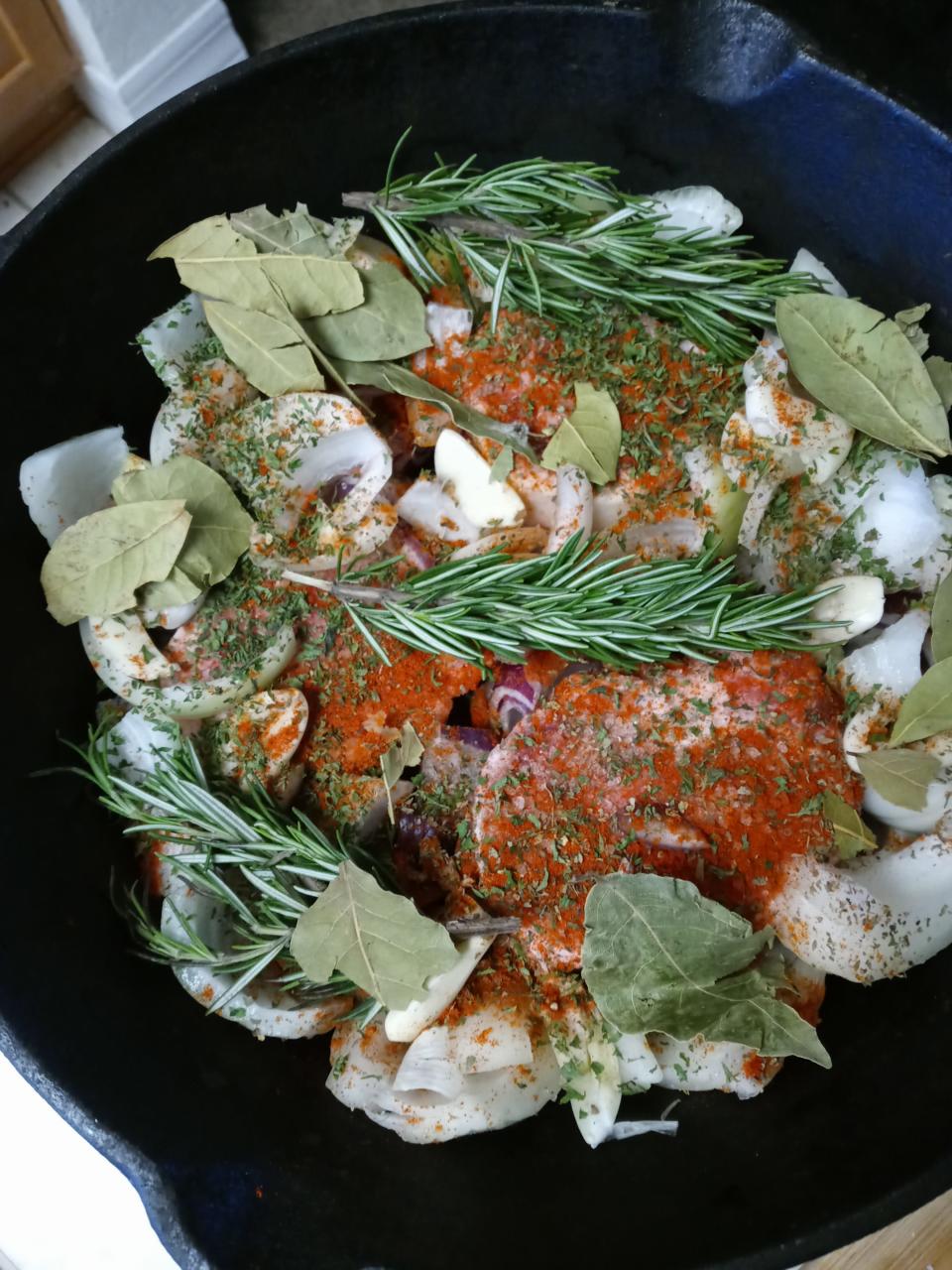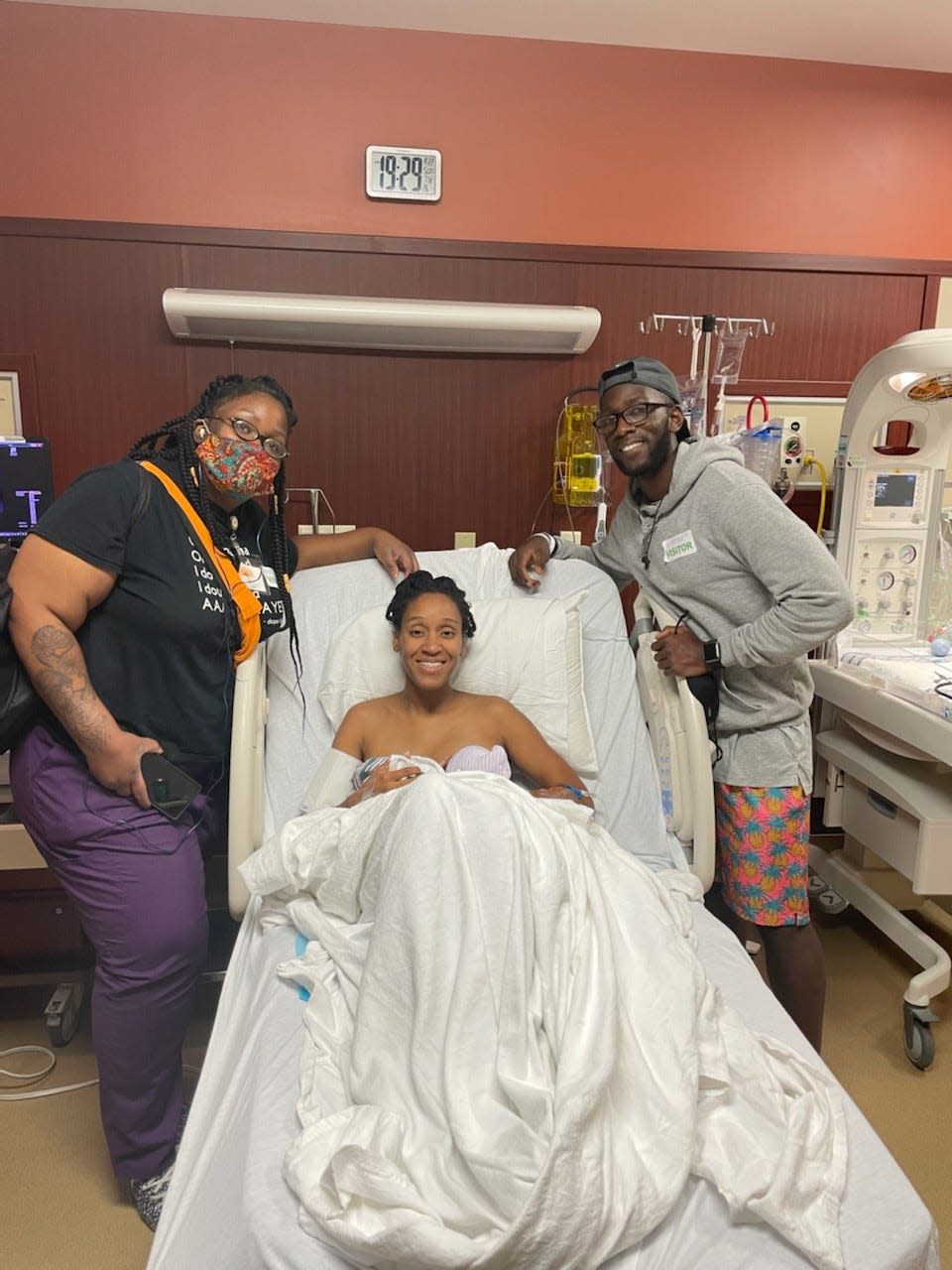Florida doula supports expecting mothers, seeks to reduce high maternal deaths in US

OCALA, Fla. — When Calvis Jones read a report from the Centers for Disease Control and Prevention a few years ago showing that the United States was the most dangerous developed country to have a baby in, and that Black women were dying at disproportionate rates, she knew something had to be done.
She wrapped up her 16-year career as a teacher with Marion County Public Schools and decided to pursue other passions. In 2018, she finished her doula training with DONA International and opened her own natural health and doula practice, now called The Rapha Place.
Now in the midst of opening a college to train birth workers in Marion County, Florida, Jones is pursuing her goal to improve birthing outcomes in the country, especially among Black women.
'Black women were dying'
“When I went further into the data, Black women were dying. They were three times more likely to die, and that really got to me,” she said. "That has no business being in an industrialized nation.”
The CDC reported in 2019 that around 700 women in the United States die annually from pregnancy or related complications, and that racial and ethnic disparities exist.
From 2007 to 2016, Black women experienced higher pregnancy-related mortality ratios than women of other races. The ratio of deaths for Black women was 41 per 100,000 live births compared to 30 for American Indian and Alaska Native women and 13 for white women.
Black women with at least some college education had higher mortality rates than women of other races with less than a high school diploma.
“Typically when you increase the income and education level of a subgroup, then health risks are supposed to match. It’s supposed to be an inverse relationship,” Jones said. "But when we look at the data for Black women across the board, regardless of education or socioeconomic status, Black women have the same risk level across the board of dying during childbirth."
The CDC report noted that systemic factors like gaps in health care coverage and social services contribute to pregnancy-related deaths. It stated that hospitals can help by addressing implicit bias and that it is crucial to ensure access to quality care before, during and after birth for all women.
"We need to have advocacy, and that's what I enjoy the most about being a birth worker,” Jones said.
Jones has clients of all races and ethnicities, but her focus is on the Black community, where she has seen the need in Marion County and across the country.
Doulas support mothers' decisions
Doulas are non-medical providers who support mothers during pregnancy. In the pre-natal period, this could include in-depth discussions about their birth plans, nutrition and childbirth education.
During labor and delivery, Jones, who is also an herbalist, may cook broth, apply pressure to a mother’s back, calm her during contractions, help her on a birthing ball or lead her in meditation.
“I might give them a preparation of some lemon balm and just kind of calm them down,” she said of her techniques to help mothers focus. “I use aromatherapy, so lavender and chamomile, essential oils. I might massage or just rub them down just to help them stay calm.”

After birth, she helps with postpartum support, sometimes doing meal preparation, baby care or light cleaning.
Throughout the process, she strives to provide access to unbiased information to help mothers make decisions.
“For instance, if they (doctors) want to go ahead and add Pitocin to the mix, then I tell my client, ‘Well, this is what Pitocin is. Here are the pros to using Pitocin. Here are the possible cons,’ ” Jones said. “It's really about making sure that the mom is in control as much as possible.”
While it can be hard for family members to think objectively, Jones acts as an unbiased person in the room, keeping everyone calm and supporting the mother’s decisions, especially in emergencies.
"Ultimately, it's about the health of the moms and the health of the baby, but there’s so many other pieces to having a successful pregnancy, having a successful birth, and then having a successful postpartum period,” she said. “(The doula) is a person who's focused on mental well-being, emotional well-being.”
Supporting mothers and babies
Jaleesa Conyers, who had a baby boy on Aug. 21 with Jones’s support, had her first child 11 years ago without a doula.
“I didn’t really understand what childbirth was until I got to the hospital, and then I felt as if I wasn’t really making informed decisions,” she said. “Whatever was told to me or suggested to me by the nurse, that’s kind of just what I went with.”
Going into her second birth, Conyers wanted to better understand the choices she had and reached out to Jones.
“She told me that she was there to support my birth plan, so she gave suggestions based on what I told her,” Conyers said of Jones. “She didn’t make decisions for me. She didn’t tell me what to do. Whenever I had questions, she gave me a lot of information.”
'Love you forever': Chrissy Teigen commemorates one year since losing baby in emotional posts

After the birth, Jones has come to help care for baby Jahari and cook nutritious meals for Conyers for postpartum health.
The recovery was much easier than her first birth, she says, and she was in a better mental state because of the support she had.
“I definitely recommend a doula,” Conyers said, even with a supportive fiancé by her side. "Having Calvis there during the delivery and coming here for postpartum, it helps both mother and father, and you just get support that you don’t get from your doctors or any other person.”
Jones provides other health and wellness services with an emphasis on getting people off of unnecessary medications and supporting healthy lifestyle changes, but her passion is birth work.
“The use of medical interventions across the board are reduced when a doula is present just because the mom has more information and has better access to information,” she said. “Doulas are considered essential enough for Medicaid to cover the service.”
Four states — Indiana, Minnesota, New Jersey and Oregon — mandate coverage of doula services through Medicaid, and New York has a pilot program. Florida is among others where some health plans cover doula services for Medicaid enrollees.
Training the next generation of birth workers
Jones is also a doctoral student at New Eden College of Health and Science studying herbal medicine. As a former teacher, she has plans to open a college of her own, Rapha College of Natural Health, in the spring.
“I’ve only been a doula for three years, but I’m a teacher at my core,” Jones said. "It was just a natural progression, and it's not that I feel like I've learned everything I need to know, but I'm in the trenches enough to know gaps in training.”
She is currently writing the curriculum for the program, which will include nine months of training with a four-day, hands-on intensive for 10 future birth workers.
Jones believes doulas are very important to improving birthing outcomes in the United States and changing the grim statistics that inspired her to get into birth work.
“I just want to be a part of helping to improve the nature of having a baby in this country,” she said. “And to close that gap for Black women that are giving birth. That’s my mission. That’s my passion.”
This article originally appeared on Ocala Star-Banner: Florida doula seeks to reduce maternal deaths in US

